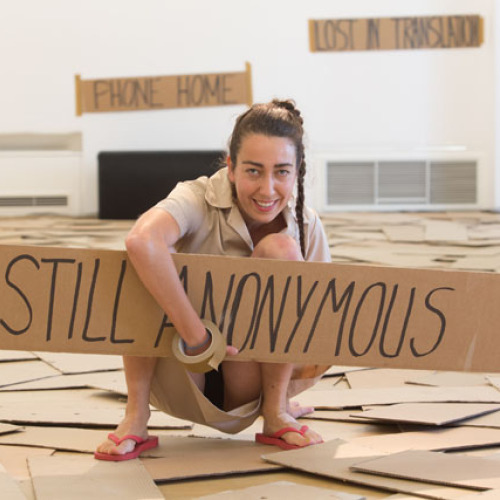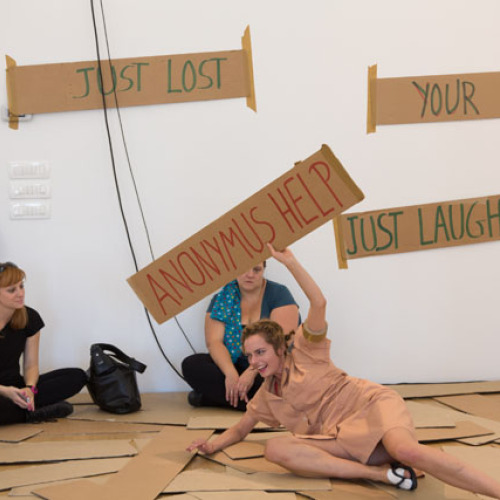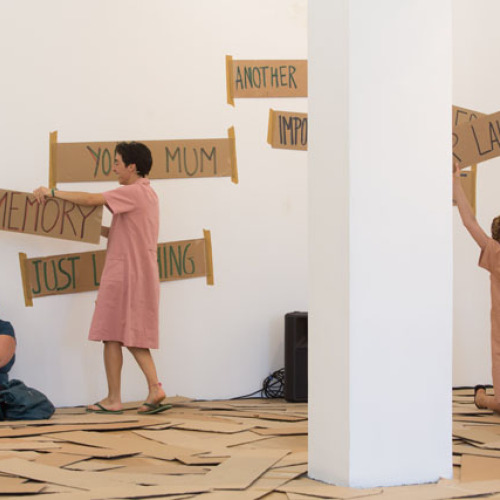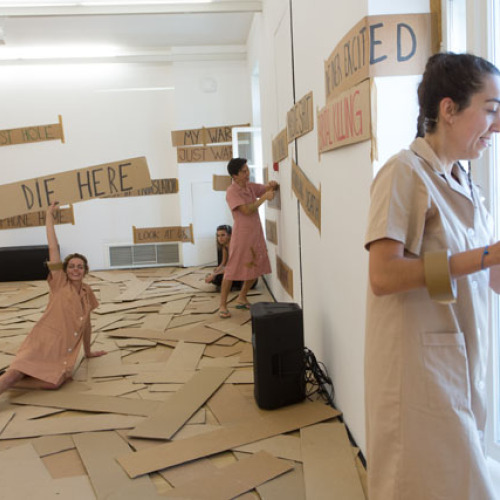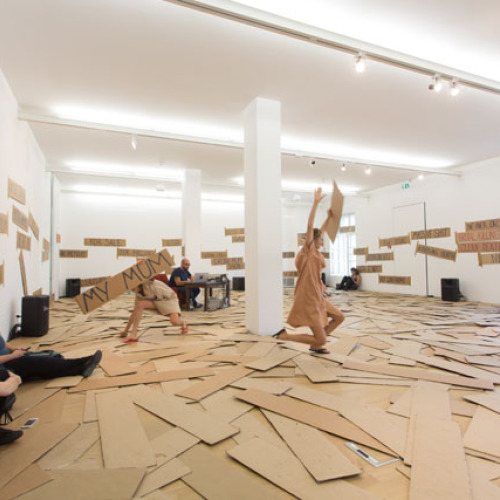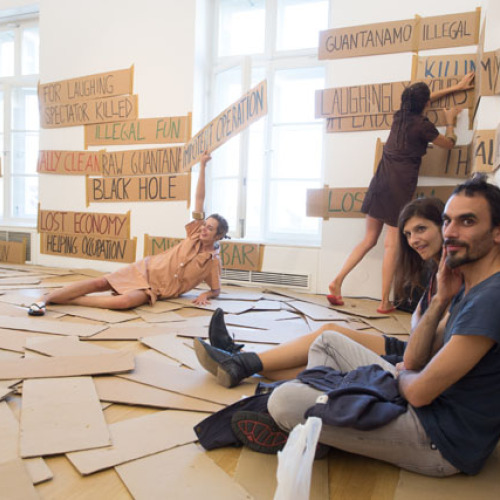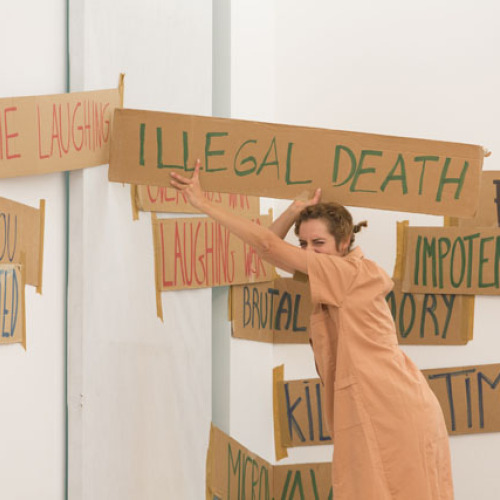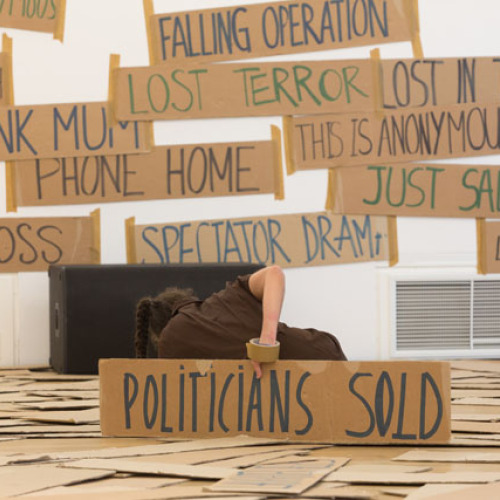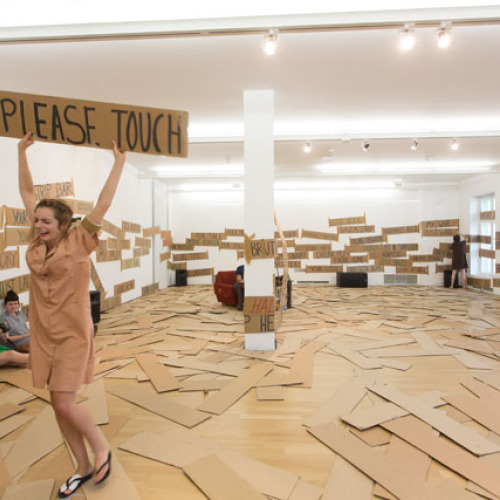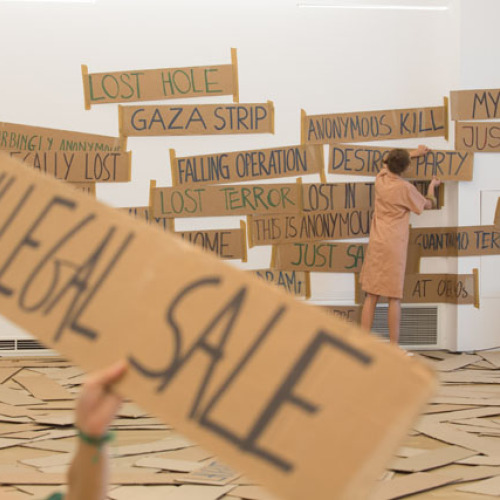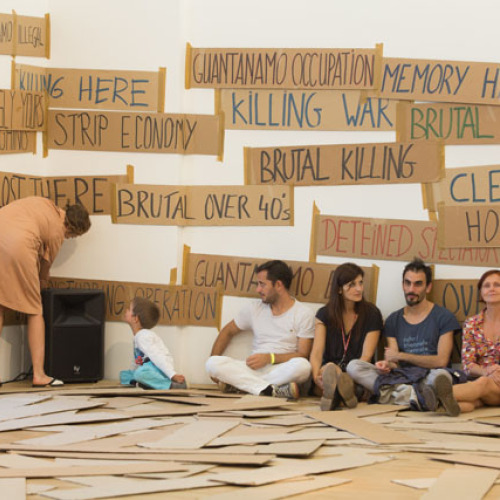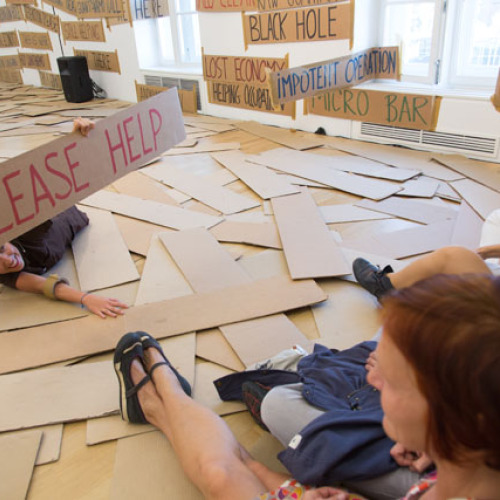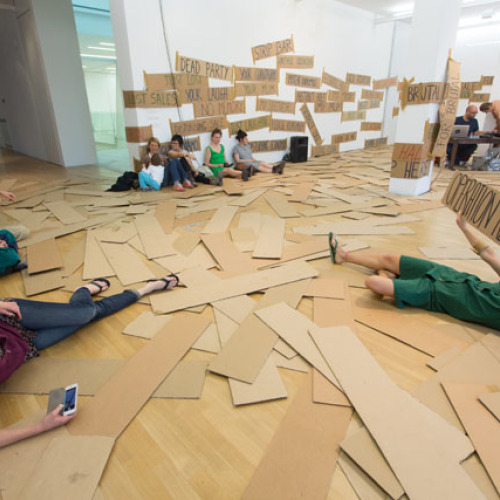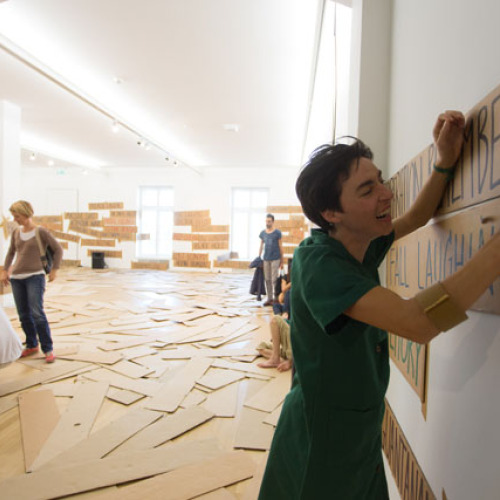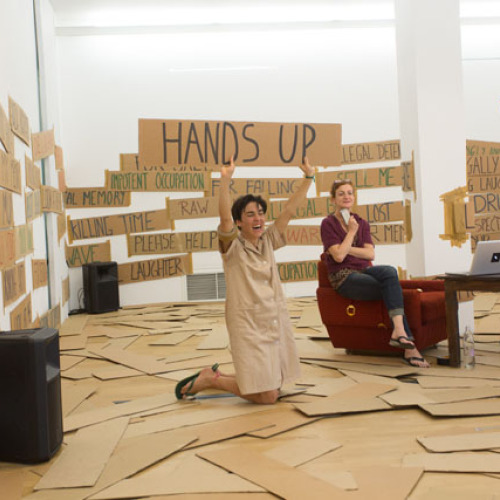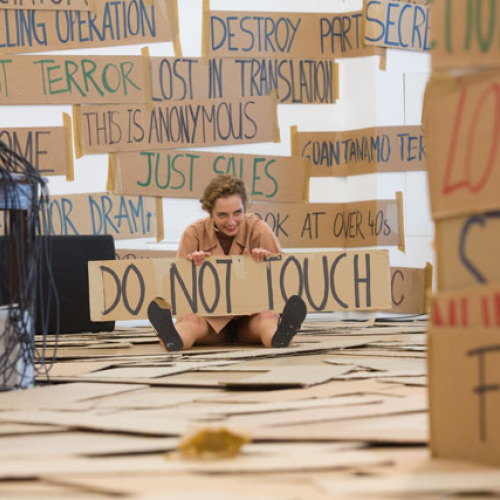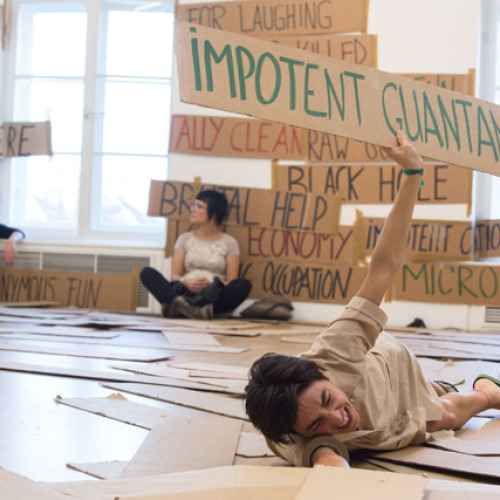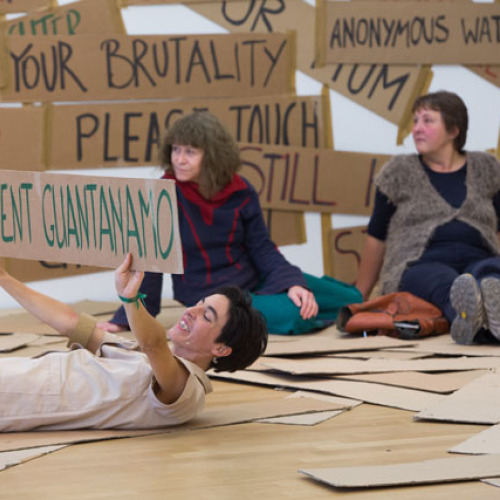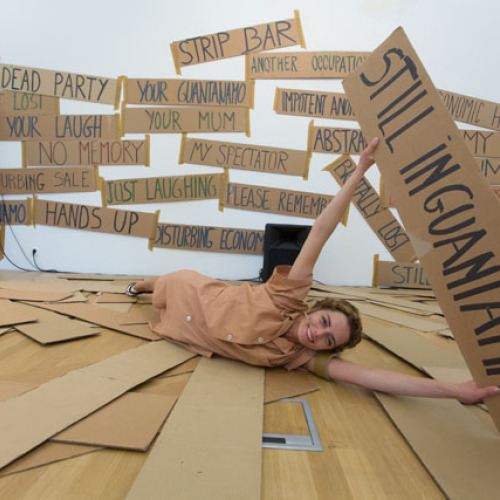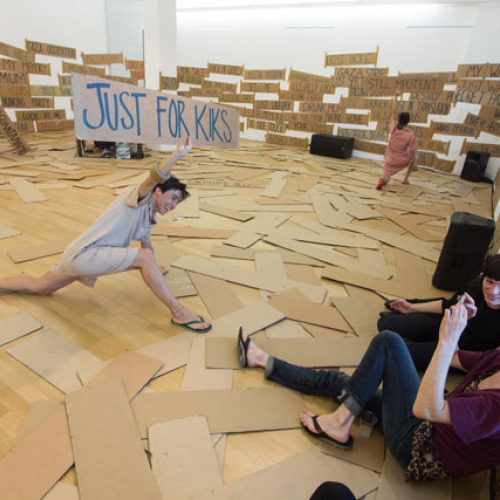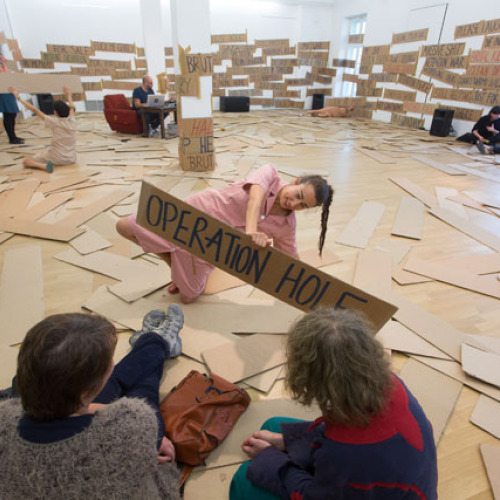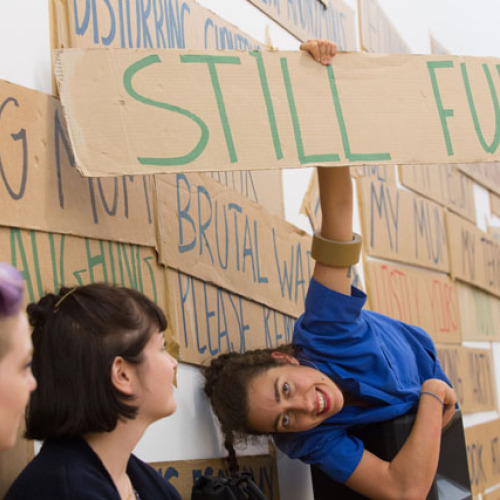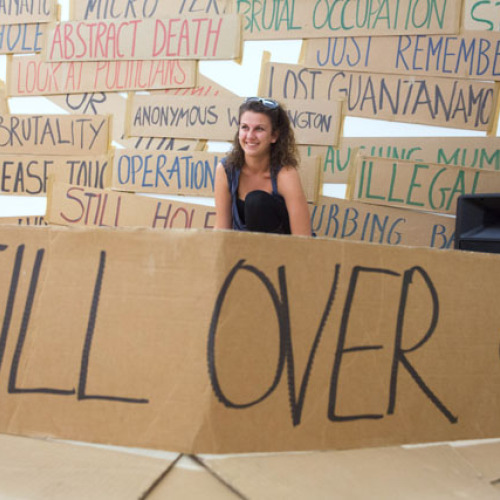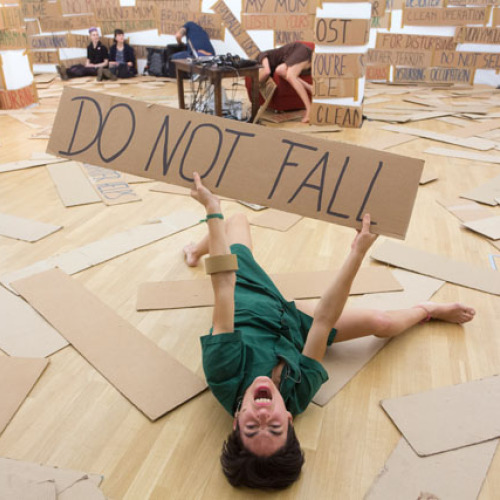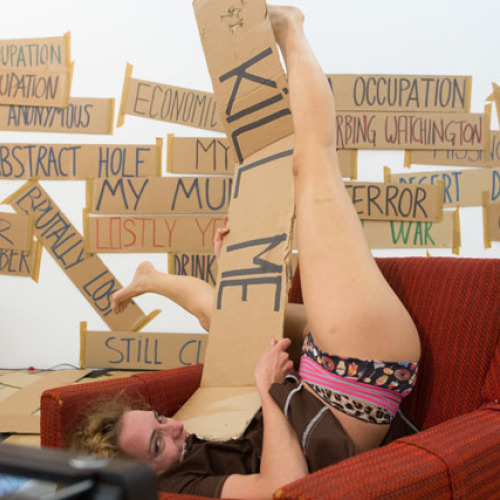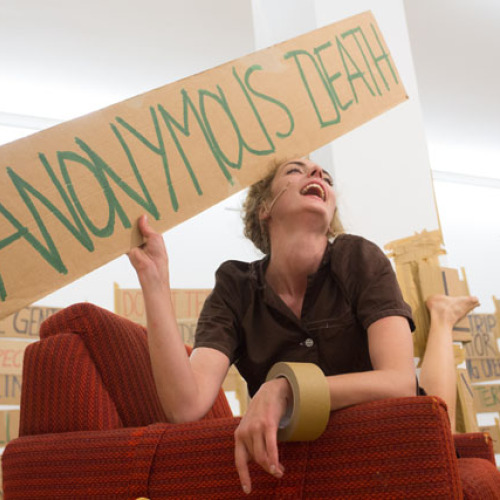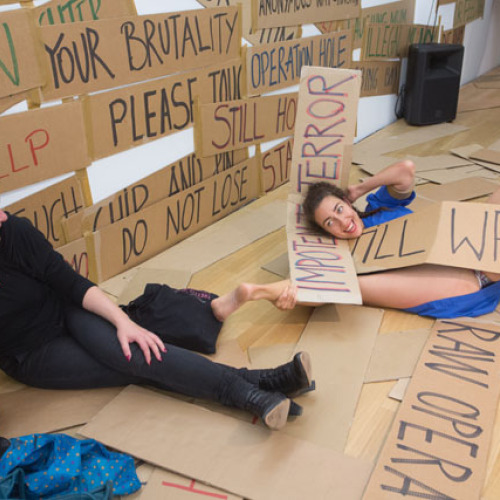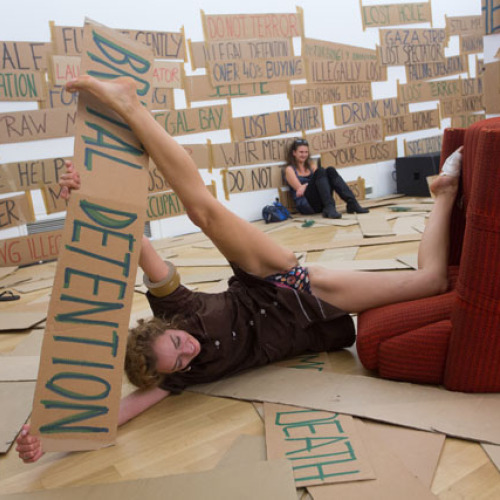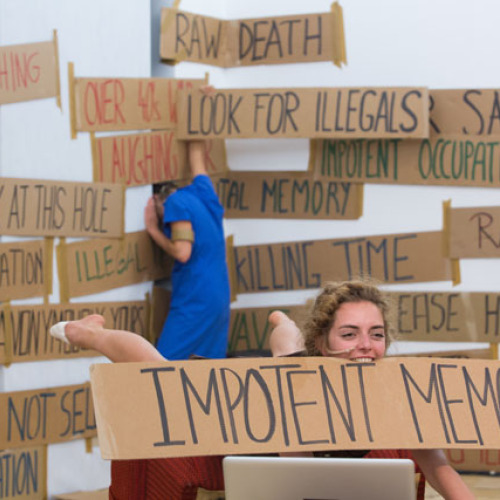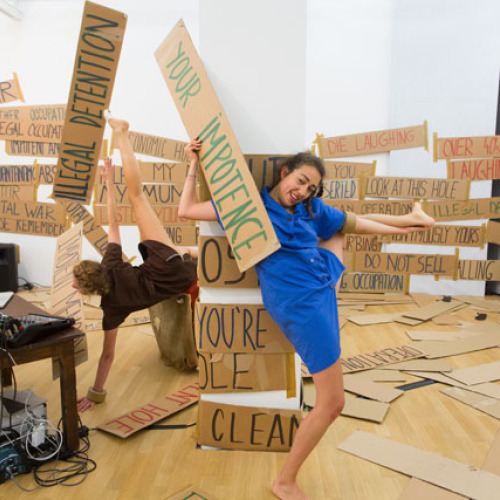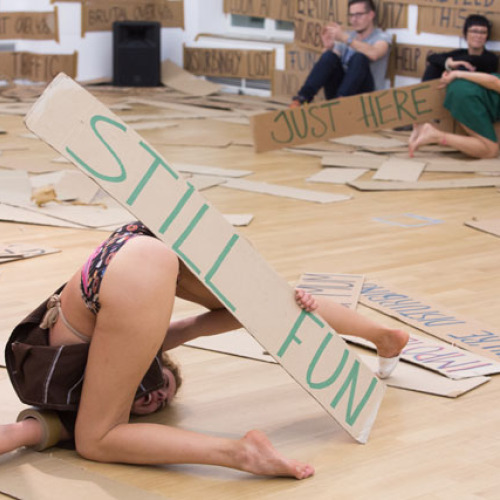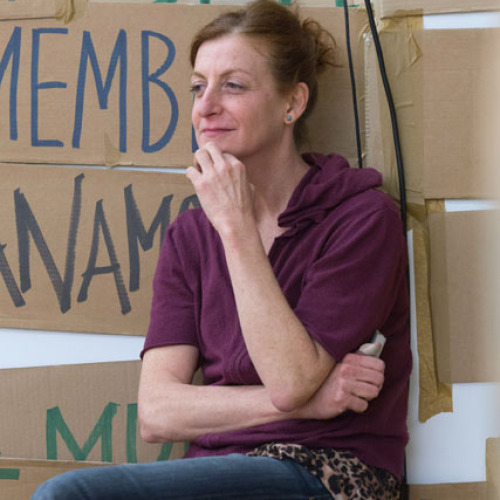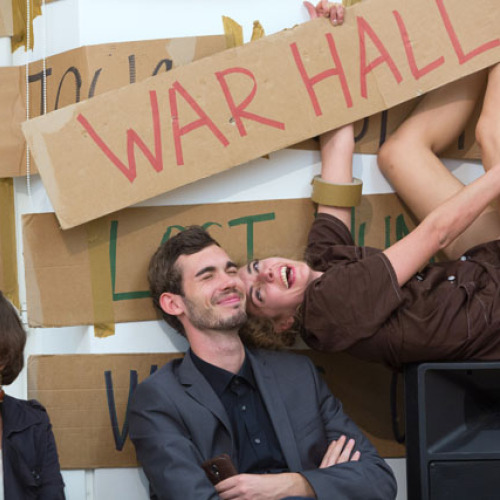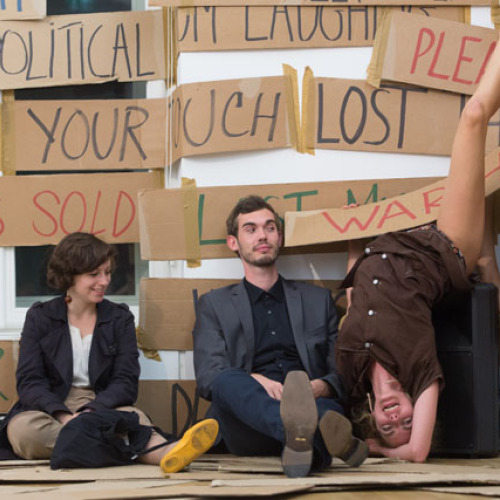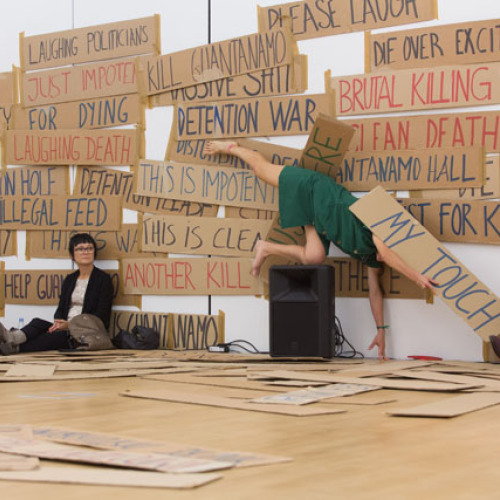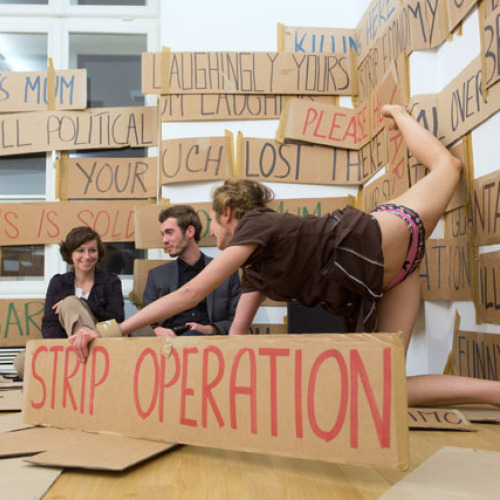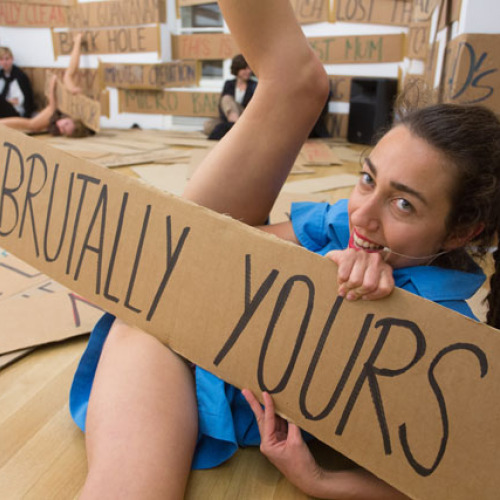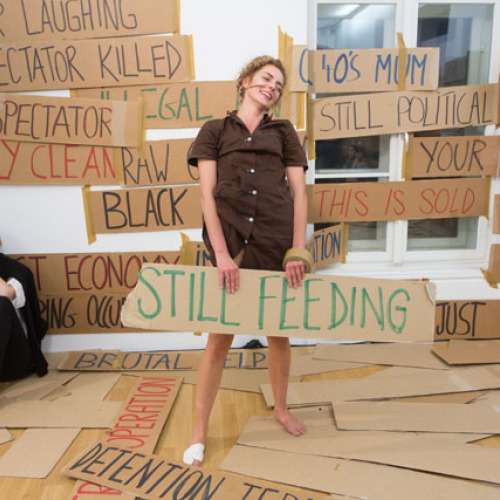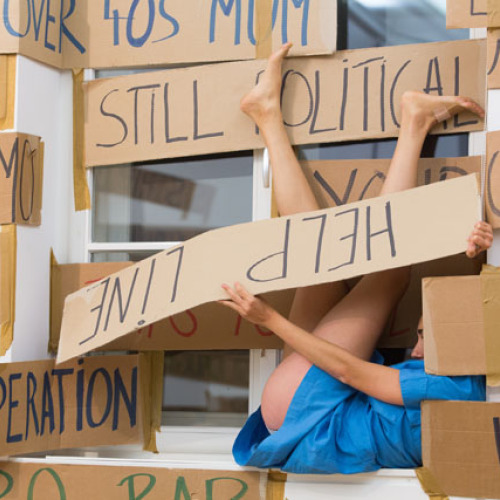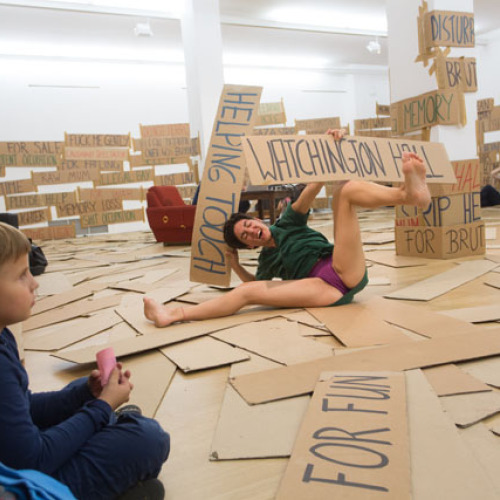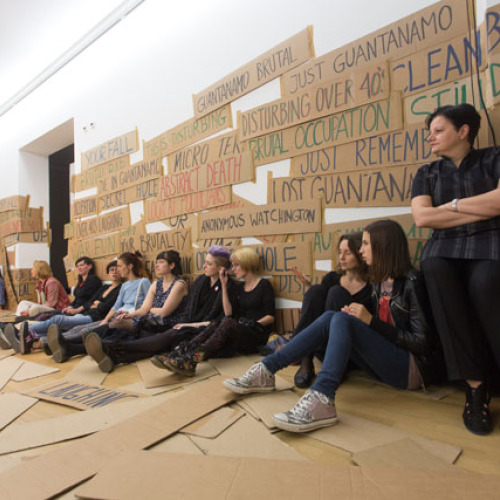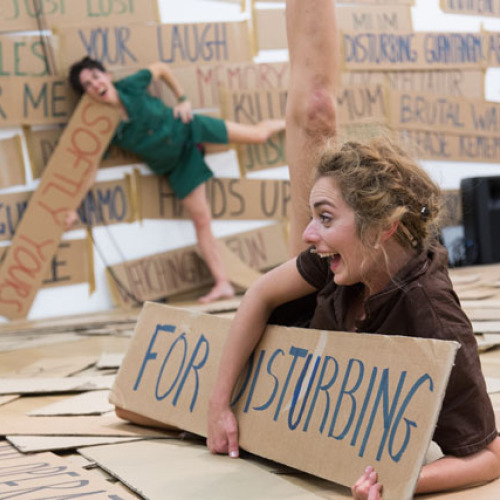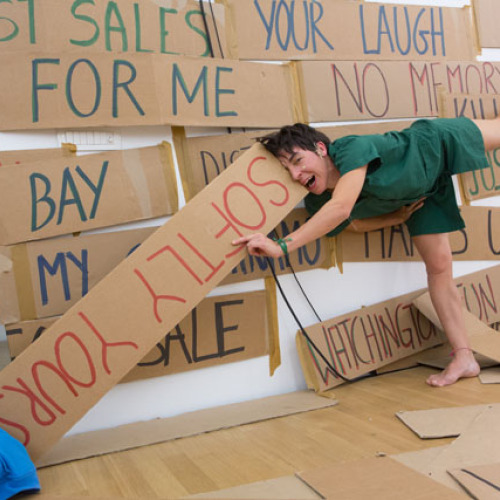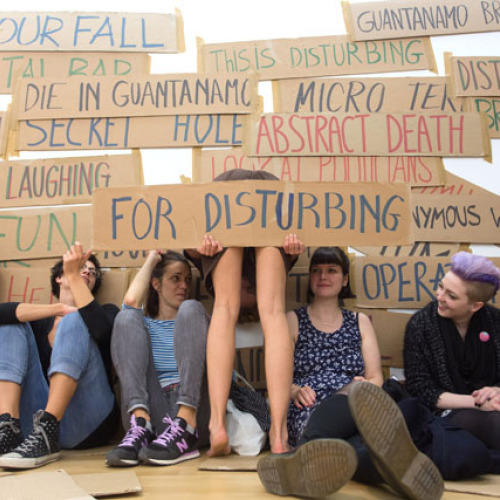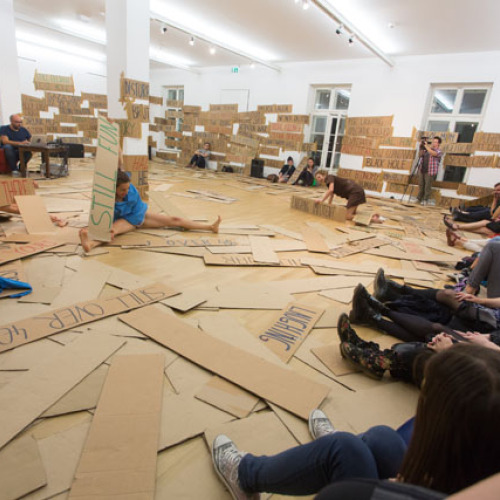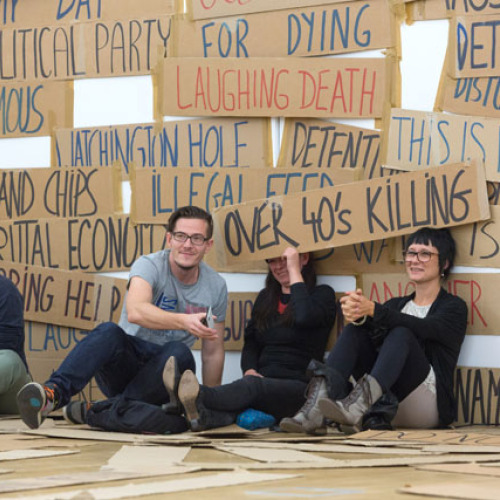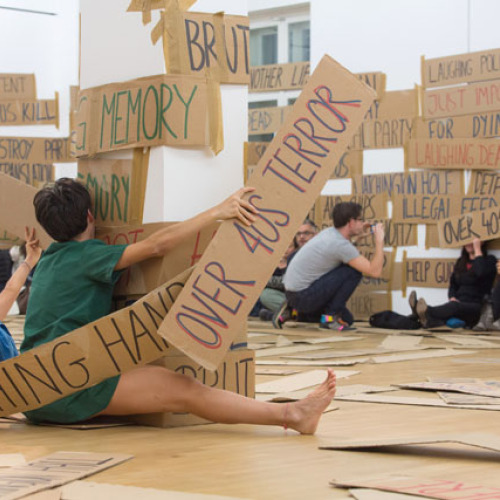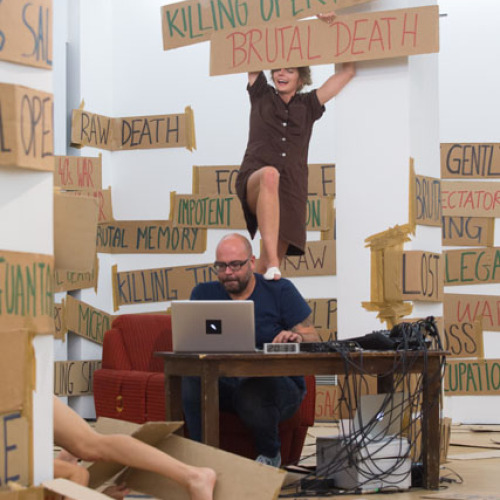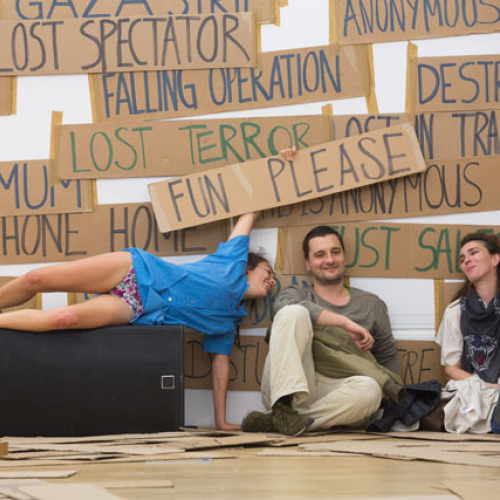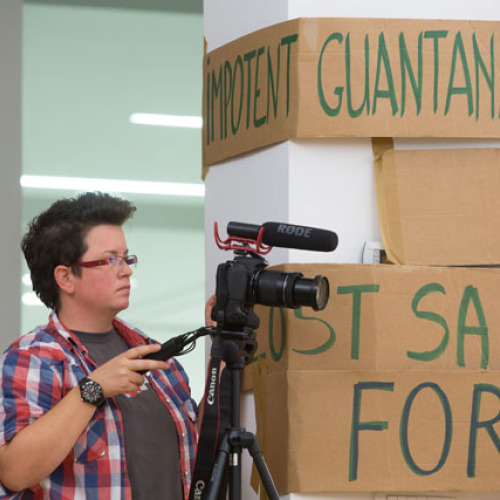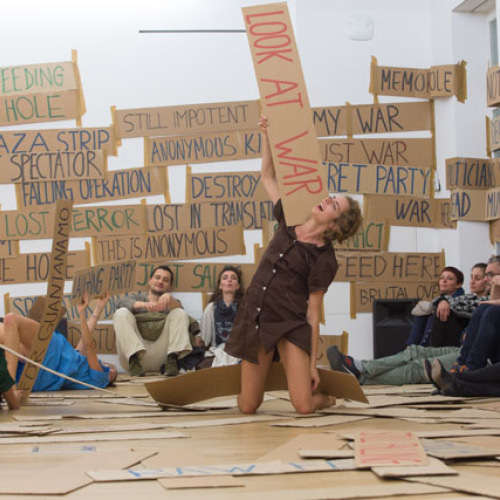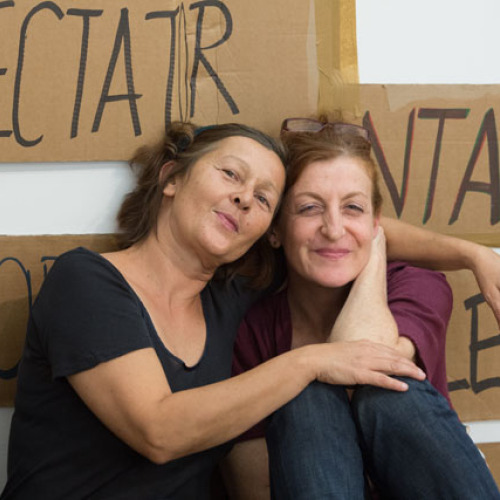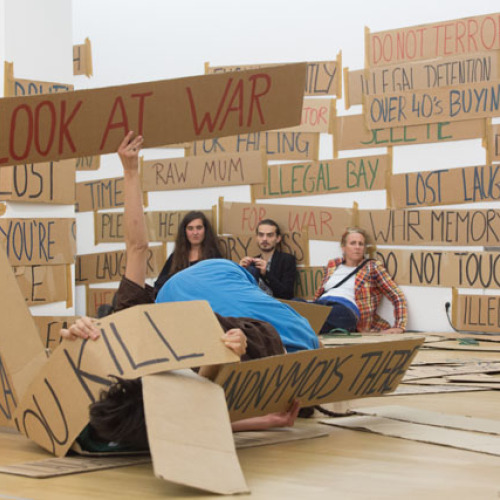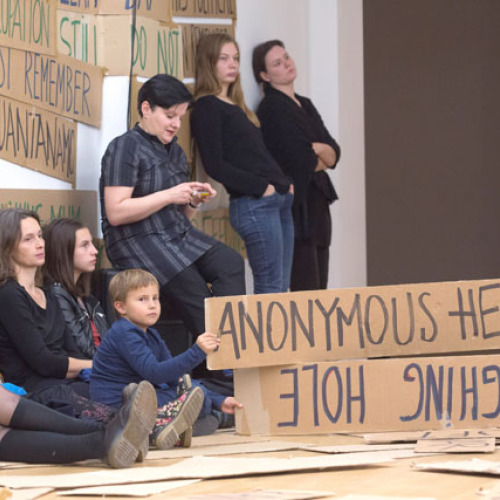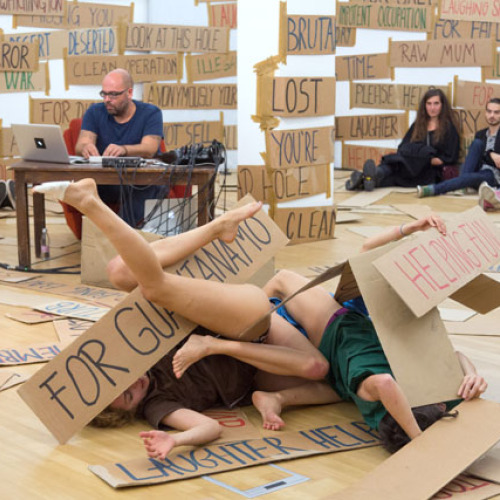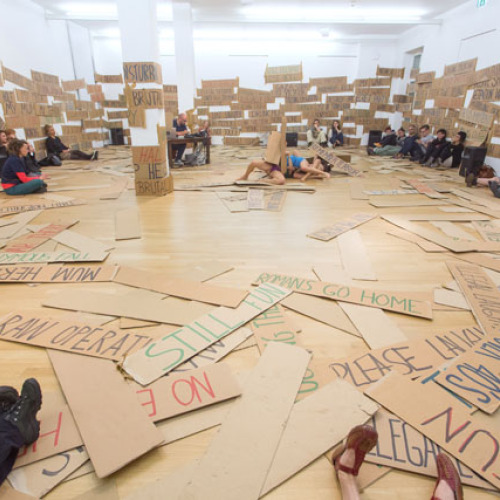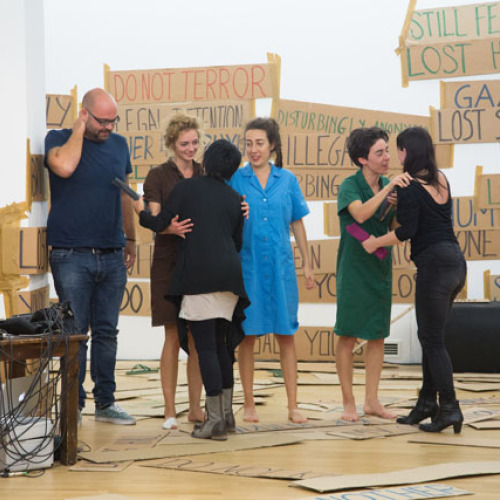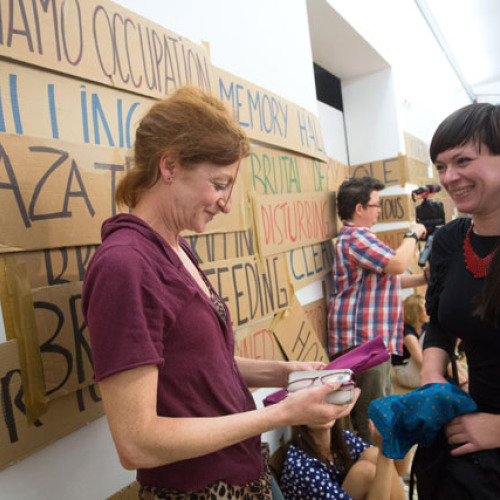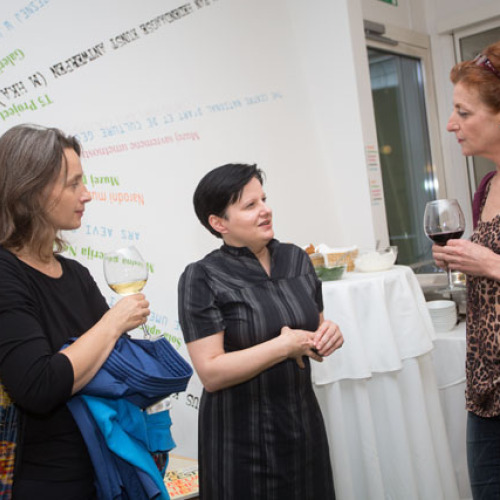
Laughing Hole
The performance-installation Laughing Hole was launched in 2006 and, in one of its iterations, lasted six hours, making it La Ribot’s lengthiest work. According to writer Jaime Conde-Salazar, it’s also her most overtly political piece: an expression of anger and revulsion towards “the illegal prison of Guantánamo and the whole ideological operation surrounding that subject.” Three female performers dressed in cleaners’ overalls sort through hundreds of cardboard placards that, face-down, litter the floor of the performance space. One by one, they display the cards and tape them to the walls, filling the space with disjointed, often politically tendentious phrases such as “die here”, “anonymous in Guantánamo”, “brutal hole”, “Gaza party”, “secret death”, “shit spectator”, “immigrant on sale” and “impotent terror”. The performers laugh continuously and, as fatigue takes over, with increasing desperation. Also at work is a sound artist who records and electronically morphs the laughter, amplifying the piece’s already conflicted atmosphere.
Laughing Hole’s “obsessive and hysterical laughter… inevitably recalls Hannah Arendt’s laughter” when faced with the “banality of evil” during the Nuremberg trials, Conde-Salazar suggests. In his view, the work’s critique turns on an oscillation between moments of truly hedonistic laughter and a strained hilarity that is forced rather than felt. Dance historian Ramsay Burt reads the work’s dynamic a little differently; for him, the sheer persistence of the performers’ laughter shows that “they were not giving expression to any psychological motivation but…executing a task,” de-naturalising the act of laughing altogether and staging “a prolonged interruption of the discourse of bodily communication.”
The piece’s laughter is also a gesture of dissent towards the dehumanizing verbal imagery of the mass media. Echoing the brutality of tabloid headlines, Laughing Hole’s texts protest not just Western abuses of human rights but the manner in which the media presents them to the citizens in whose names they’ve been perpetrated. (La Ribot)
Performed in English.
Written and Directed by: La Ribot; Performers: Tamara Alegre, Olivia Csiky Trnka, Maria Arantzazu Martinez Rabancho; Sound Design: Clive Jenkins; Musician: Fernando de Miguel; English Translation: Catherine Phelps.
Organisation: City of Women; In collaboration with: Modern Gallery, Ljubljana.
Supported by: Embassy of Switzerland in Slovenia, Embassy of the Kingdom of Spain in Slovenia.
Price: € 7, € 5 (students, unemployed, pensioners, self-employed in culture, disabled).

